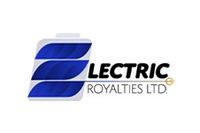At this year’s Benchmark World Tour stop in Vancouver, INN talked to Benchmark Mineral Intelligence Principal Consultant Vivas Kumar.
At this year’s Benchmark World Tour stop in Vancouver, the Investing News Network spoke to Benchmark Mineral Intelligence Principal Consultant, Supply Chain, Vivas Kumar.
Kumar, who worked at Tesla (NASDAQ:TSLA) before joining the London-based firm, shared his insight on the electric vehicle (EV) supply chain.
For the expert, there is a large difference in the way in which commodities work and the way specialty chemicals work, and the materials that are needed to manufacture batteries are closer to specialty chemicals than they are to commodities.
“That means that a greater investment needs to be made, specifications will get tighter. The knowledge to produce these materials is much more specialized, and the customers need to be involved in shaping the decision making around the flow sheets from the very beginning,” he said.
Speaking about the qualification for raw materials, Kumar explained why this process is key and what factors market participants need to pay attention to.
“The first one is qualification is widely differentiated between the battery players — there’s no one size fits all process,” he said. “The second one is as you go up the battery manufacturers’ tiers, when it comes to the quality they will have more strenuous processes.”
Finally, another factor to consider is that the qualification process for raw materials is something that is constantly changing, based on new regulations and the needs of EV and battery manufacturers — which are shaped by the feedback they are getting from their customers.
Listen to the interview above for more of Kumar’s thoughts on the EV supply chain, Tesla and what’s ahead for the battery metals space this year.
You can also click here to read our Benchmark World Tour Vancouver stop recap.
Don’t forget to follow us @INN_Resource for real-time news updates!
Securities Disclosure: I, Priscila Barrera, hold no direct investment interest in any company mentioned in this article.
Editorial Disclosure: The Investing News Network does not guarantee the accuracy or thoroughness of the information reported in the interviews it conducts. The opinions expressed in these interviews do not reflect the opinions of the Investing News Network and do not constitute investment advice. All readers are encouraged to perform their own due diligence.

